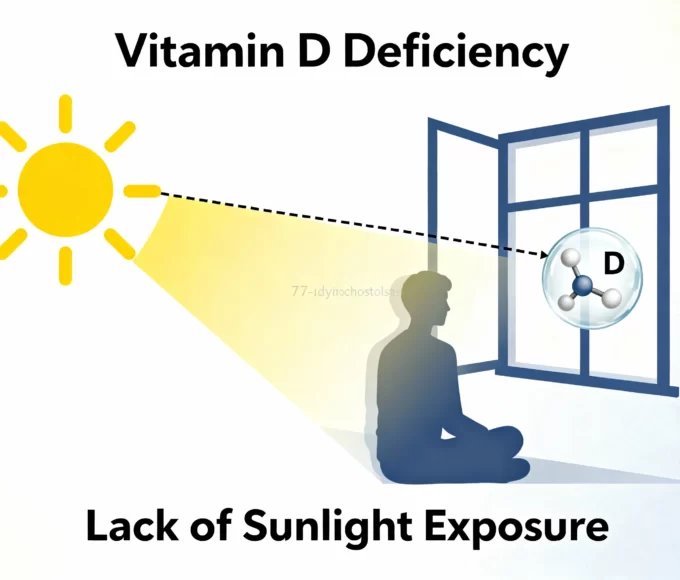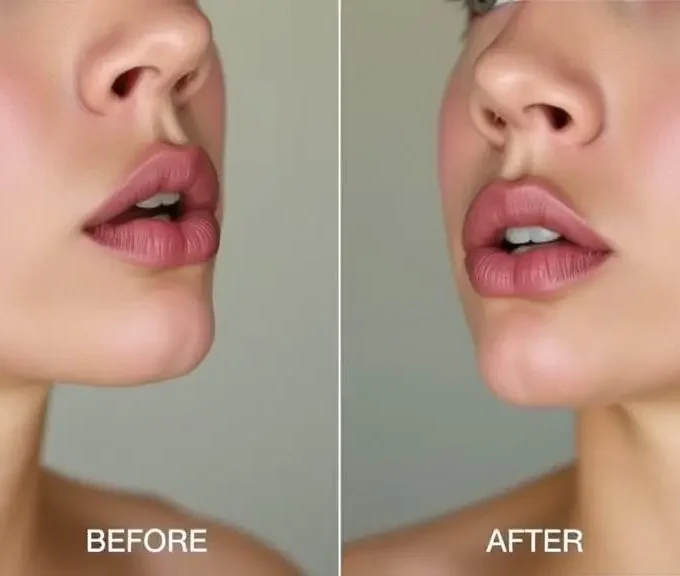Insomnia means you have trouble sleeping. That could be falling asleep, staying asleep, or waking up too early and not being able to go back to bed. It’s not just about one rough night; it’s a pattern that messes with your daily life.
The word “insomnia” comes from Latin. “Somnus” means sleep, and “in-” means the opposite. So, it basically means “no sleep.”
You don’t need a lab test to know something’s wrong. If you’re lying in bed wide awake while everyone else is fast asleep, and this keeps happening, that’s insomnia. And when it starts making you feel tired, moody, or unfocused during the day, it’s time to take it seriously.
Signs You May Be Struggling with Insomnia
Insomnia doesn’t look the same for everyone, but there are a few signs that come up again and again. The most common one? Lying in bed at night, staring at the ceiling, unable to fall asleep. Some people do fall asleep, but wake up again and again. Others wake up way too early, feeling tired but unable to go back to sleep.
It’s not just about the night, either. It affects your days, too. You might feel drained even after being in bed for hours. You may snap at people more, forget things, or find it harder to focus. Even simple tasks feel harder when your body and brain are running low on rest.
If this happens once or twice, it’s probably nothing. But if it keeps happening, your body is trying to tell you something.
The Causes Behind Insomnia
It doesn’t always come from one place. It can be caused by what’s going on in your mind, your body, or even your environment. Stress is one of the biggest triggers. If your brain is constantly running through worries, it’s tough to switch off at night. Anxiety, depression, or big life changes — like moving, losing someone, or starting a new job — can all mess with your sleep.
Sometimes, it is linked to health problems like asthma, arthritis, or chronic pain. Even something like frequent trips to the bathroom at night can break your sleep cycle. Then there are medications — some pills for allergies, blood pressure, or mental health can keep your brain too alert.
Bad habits play a role, too. Scrolling your phone in bed, drinking too much coffee, eating late, or having an irregular sleep schedule can throw off your body’s natural rhythm.
In short, insomnia can be a result of what’s happening around you, inside you, or even things you didn’t think were connected.
Types of Insomnia: Short-Term vs. Chronic
Not all insomnias are the same. For some people, it shows up for a few nights and then goes away. That’s short-term insomnia. It can happen because of stress, jet lag, a tough week at work, or anything that throws off your routine. It usually lasts a few days to a couple of weeks.
Chronic insomnia is different. It sticks around for three weeks or more, sometimes even months or years. You might go to bed every night hoping for rest, but sleep never comes easy. It starts to affect your mood, memory, energy, and even your health. People with long-term insomnia may begin to fear bedtime, which only makes things worse.
Both types are serious, but chronic insomnia can take a bigger toll on your body and mind if it’s not treated the right way.
Insomnia and VA Disability Ratings
Insomnia is common among veterans, especially those dealing with PTSD, chronic pain, or anxiety. For many, sleep doesn’t come easy, and when it does, it’s often interrupted by nightmares or restlessness. That’s why the U.S. Department of Veterans Affairs (VA) takes insomnia seriously as part of disability claims.
If you’re a veteran, you may have heard terms like “VA rating for insomnia” or “insomnia VA claim.” What this means is that if your sleep problems are linked to your service, you might be eligible for disability benefits. The VA usually rates insomnia as a secondary condition, meaning it’s tied to another health issue, like a back injury or mental health disorder.
Sometimes, symptoms like urinary frequency can be connected to insomnia, especially in cases where sleep disruption is part of a larger health pattern. The VA considers how much your it affects daily life when deciding on a rating.
Filing a claim can be a long process, but many veterans don’t realize that insomnia is something they can include. If you’re struggling with sleep after your service, it’s worth looking into.
How Insomnia Affects Daytime Functioning
Lack of sleep doesn’t just stay in the bedroom — it follows you through your day. When you’re running on little or no rest, everything feels harder. You might feel slow, distracted, or forgetful. Even tasks you usually do without thinking can feel like a struggle.
Your mood takes a hit, too. People with insomnia often feel irritable, anxious, or even depressed. Small problems feel bigger. You snap at others without meaning to. And if you’re working or studying, it gets harder to focus or stay productive.
On top of that, poor sleep affects your physical health. It weakens your immune system and makes you more likely to get sick. It also raises your risk of serious problems like heart disease and high blood pressure. Driving while sleep-deprived is as dangerous as driving drunk — that’s how much it messes with your reaction time and focus.
Diagnosing Insomnia
Insomnia isn’t diagnosed with one simple test. Instead, it’s based mostly on what you say about your sleep. If you tell your doctor that you can’t fall asleep, keep waking up at night, or feel exhausted during the day, that’s the first clue.
They might ask how long this has been happening, how it’s affecting your life, and if anything stressful or unusual has happened recently. You may be asked to keep a sleep diary, writing down what time you go to bed, how long you sleep, and how you feel each day. This helps spot patterns.
In some cases, you might be sent to a sleep clinic for a test called a sleep study. This usually happens if your doctor thinks there’s another issue going on, like sleep apnea. But for most people, it is diagnosed by listening closely to your story and seeing how much your sleep troubles are hurting your daily routine.
Treatment and Management Options
Insomnia doesn’t have one perfect fix. What works for one person might not work for another. But there are a few proven ways to manage it and even get rid of it.
The first step is often changing your habits. This includes sticking to a regular sleep schedule, keeping screens out of the bedroom, cutting back on caffeine, and creating a calming night routine. These small changes can make a big difference over time.
One of the best treatments is something called Cognitive Behavioral Therapy for Insomnia (CBT-I). It’s a type of therapy that helps you understand what’s keeping you awake and how to fix it. It teaches you how to break bad sleep habits, calm your racing thoughts, and rebuild trust in your ability to fall asleep.
Some people try natural remedies like melatonin, chamomile tea, or magnesium supplements. These can help, but they’re not magic solutions. Others might need sleep medication, at least for a short time. If you’re thinking about pills, talk to your doctor first — some can cause side effects or become less effective over time.
The main thing is to take insomnia seriously and stay consistent with whatever treatment path you choose.
“So, what’s my final advice? Please don’t accept insomnia as your new normal. From my clinical experience, I can tell you that almost everyone can learn to sleep well again. It takes time, consistency, and a willingness to address the root causes of your sleep problems. By working with a healthcare provider and making smart lifestyle choices, you can break the cycle of sleepless nights and wake up feeling refreshed and ready to take on the day. Your health is a journey, and a good night’s sleep is the foundation of it all.”
FAQs
What is considered severe insomnia?
It means you have trouble sleeping almost every night, and it seriously affects your ability to function during the day. It often lasts for weeks or longer and doesn’t go away on its own.
Can insomnias type be cured?
Yes, in many cases. With the right treatment — like CBT-I, lifestyle changes, or medical help — most people can get their sleep back on track. It takes consistency, but it’s possible.
Does anxiety cause insomnia?
Yes. Anxiety is one of the most common causes of insomnia. When your mind is racing or you’re stuck in worry, it’s hard for your body to relax enough to sleep.
How long does chronic insomnia last?
Chronic insomnias usually lasts more than three weeks. Some people deal with it for months or even years if it’s not treated.
What VA rating do you get for insomnia?
The VA rating for insomnia depends on how much it affects your life. It’s often rated as a secondary condition tied to another issue, like PTSD. Ratings can vary, usually from 0% to 70%.
Medically Reviewed by Dr. Muhammad Usman
References
- American Academy of Sleep Medicine. Insomnia. https://aasm.org/resources/factsheets/insomnia.pdf
- National Heart, Lung, and Blood Institute (NHLBI). What Is Insomnia? https://www.nhlbi.nih.gov/health/insomnia
- Mayo Clinic. Insomnia – Symptoms and Causes. https://www.mayoclinic.org/diseases-conditions/insomnia
- U.S. Department of Veterans Affairs. VA Disability for Sleep Disorders (Insomnia). https://www.va.gov/disability/eligibility/sleep-disorders











